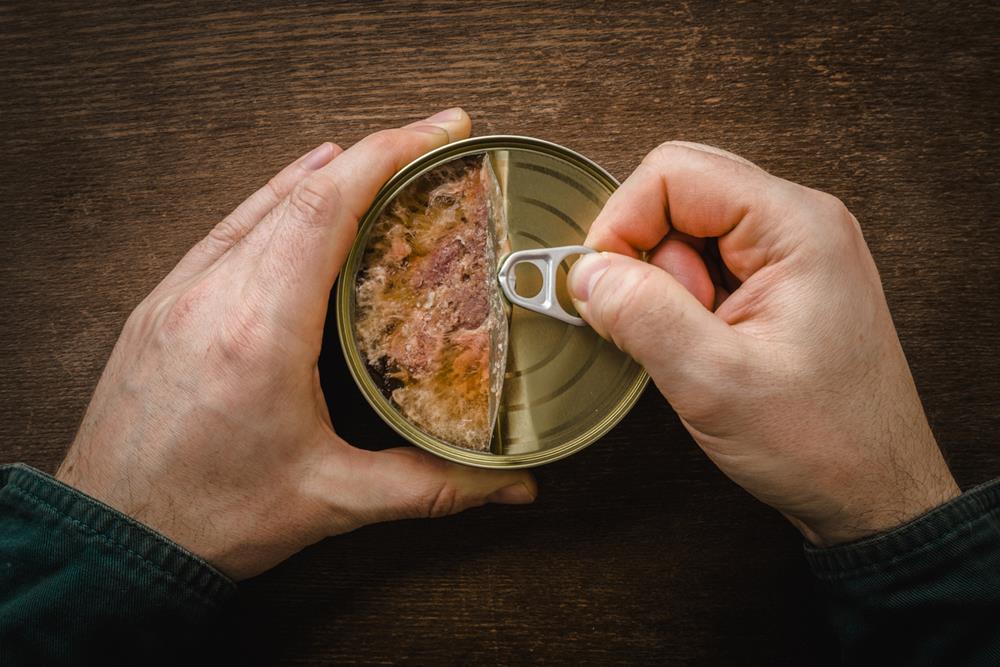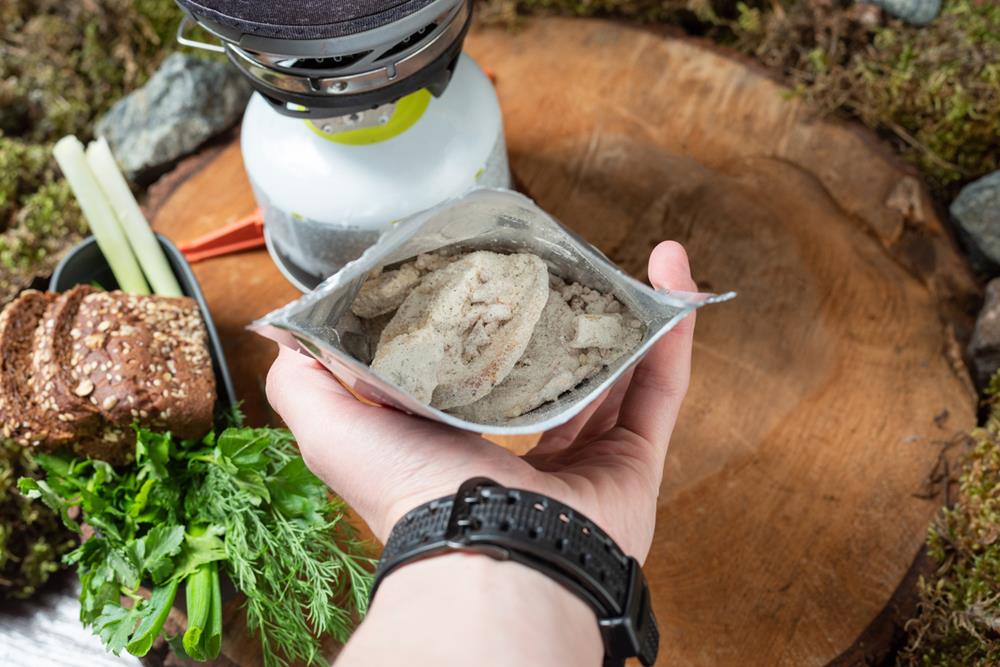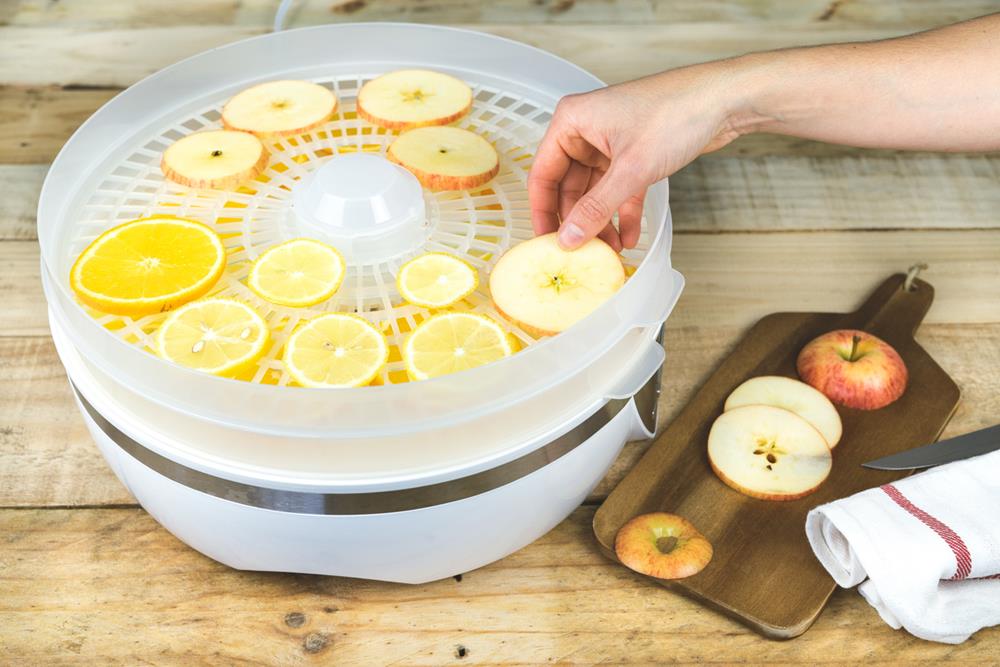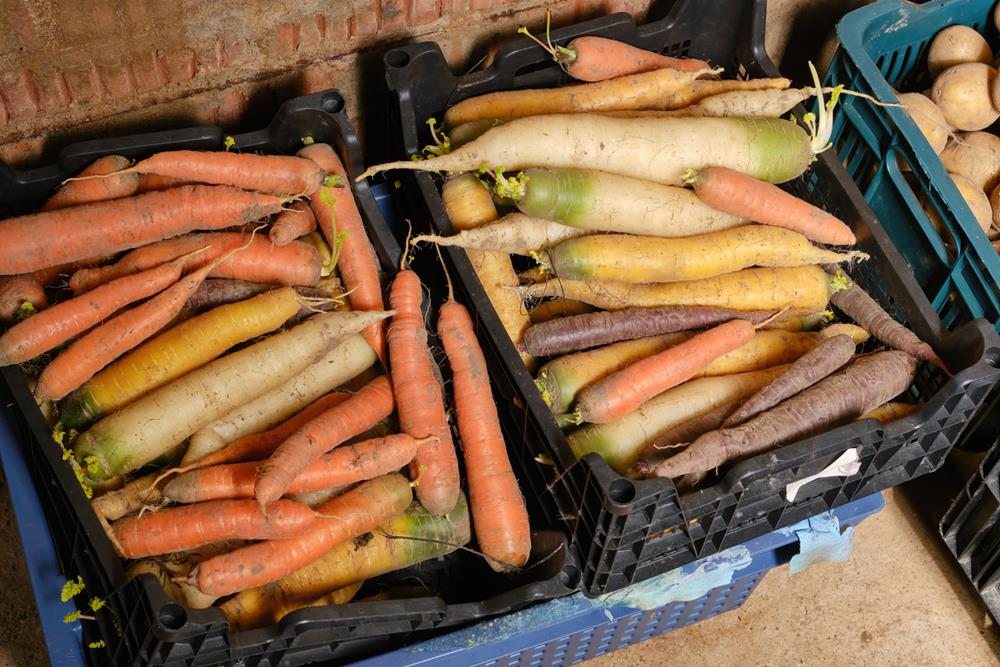How to Preserve Eggs for Long-Term Storage
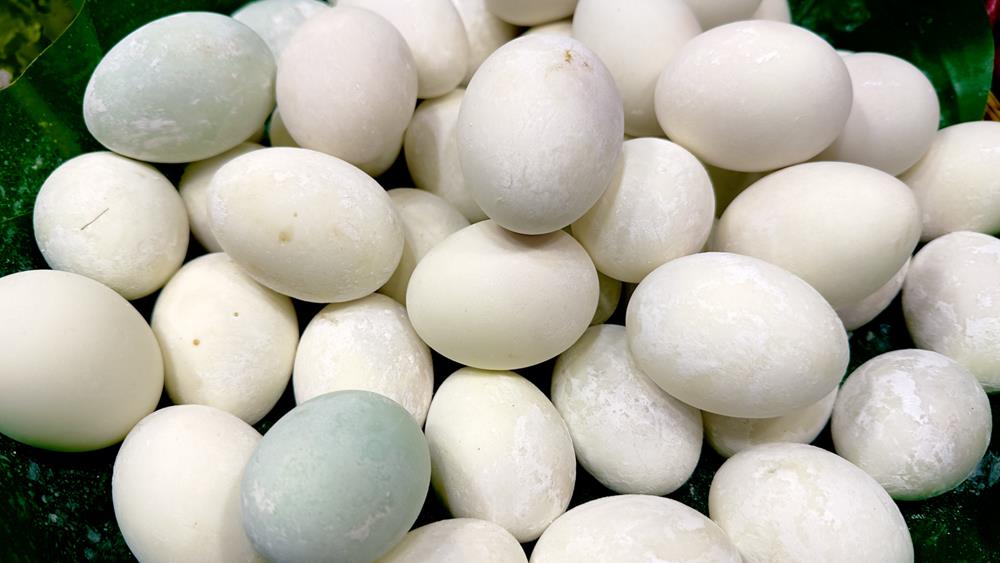
Eggs are a staple in many households, but they can be tricky to store for the long haul. Whether you're prepping for emergencies, raising backyard chickens, or just trying to cut down on grocery trips, learning how to preserve eggs properly can help you keep this protein-rich food available year-round.
In this article, we’ll explore the most effective methods for long-term egg storage—from water glassing and freezing to freeze-drying and beyond—so you can build a more resilient and self-sufficient food supply.
| Preservation Method | Description | Pros | Cons | Estimated Shelf Life |
|---|---|---|---|---|
| Water Glassing | Submerging fresh, unwashed eggs in a solution of food-grade hydrated lime and water | Simple, long-lasting, no refrigeration needed, preserves natural texture | Only works with unwashed eggs; not suitable for store-bought | Up to 18 months |
| Freezing | Crack, beat, and freeze eggs in trays; transfer to airtight bags for storage | Convenient, uses common kitchen tools, good for everyday use | Alters texture slightly; must be pre-beaten; shorter shelf life | Up to 1 year |
| Dehydrating | Cooked or raw eggs are dried at high temperatures and stored in airtight containers | Good for long-term storage, lightweight, compact | Requires proper drying; slight change in taste/texture | 5–10 years |
| Freeze-Drying | Using a home freeze dryer to remove moisture from raw or scrambled eggs | Very long shelf life, preserves nutrients well | Expensive equipment needed; texture may slightly change | 10–25 years |
| Salting Yolks | Yolks are buried in salt and refrigerated, then stored airtight after curing | Simple, flavorful, good for gourmet use | Only preserves yolks; alters taste and texture | Up to 6 months |
Understanding the Basics of Egg Preservation
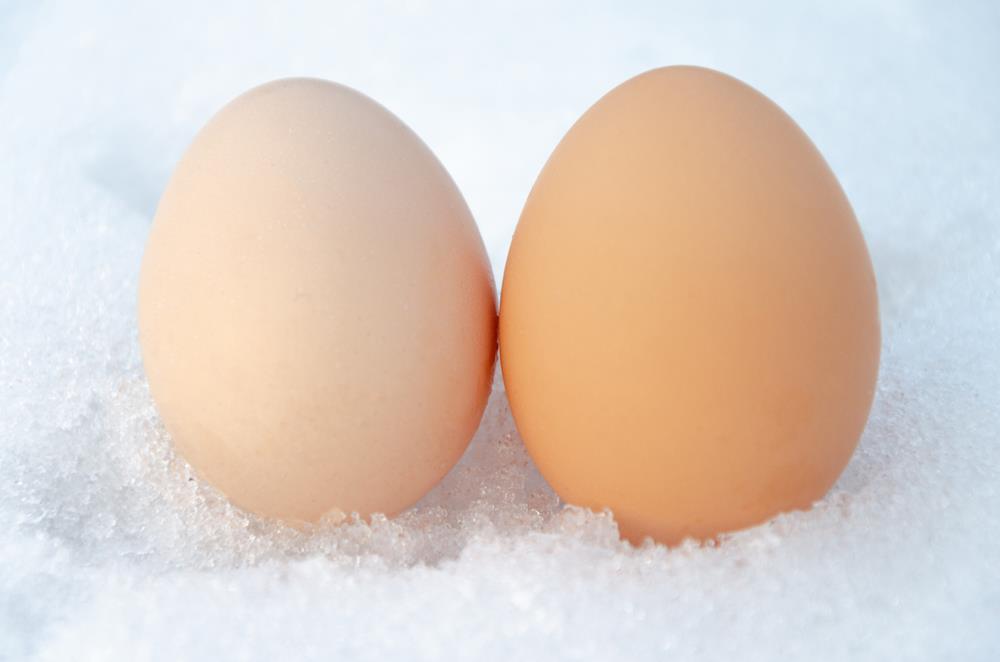
Preserving eggs might sound complicated at first, but once you learn the basics, it’s surprisingly simple—and incredibly useful.
There are several effective methods for long-term egg storage, including freezing, dehydrating, and freeze-drying. The key to success is starting with fresh, unwashed eggs, which helps maintain their natural protective coating and overall quality.
Freezing: Crack and lightly scramble the eggs before freezing them in airtight containers. This method keeps eggs usable for several months.
Dehydrating: You can dehydrate raw or cooked eggs. Once dried and stored in an airtight container, they can last 5 to 10 years, making them great for long-term storage.
Freeze-Drying: This is the most advanced method, but it offers the longest shelf life—up to 25 years when stored properly.
Each technique has its pros and best-use scenarios, and understanding them helps you choose the right one for your needs.
Water Glassing Eggs: A Comprehensive Guide
If you're looking for a reliable way to preserve eggs without refrigeration, water glassing is a proven method that's been used for generations. This technique involves submerging fresh, unwashed eggs in a solution of food-grade hydrated lime (calcium hydroxide) and water.
To get the best results, follow these key tips:
Use only fresh, unwashed eggs straight from the farm. The natural bloom on the shell is essential for sealing out bacteria.
Avoid store-bought eggs, as they are usually washed and lack the protective coating.
Place eggs pointy-end down in a clean, airtight container to keep the yolks centered and prevent spoilage.
Store in a cool, dark location, such as a basement or pantry, to maintain quality.
Check periodically for cracks or signs of spoilage, and discard any questionable eggs right away.
When done properly, water glassing can keep eggs fresh for up to 18 months, offering a practical way to enjoy eggs all year long—even when your hens aren’t laying.
Freezing Eggs for Future Use
Freezing eggs is an easy and effective way to extend their shelf life and ensure you always have some available—whether for baking, cooking, or emergencies.
Here’s how to do it right:
Crack and beat the eggs until the whites and yolks are fully combined.
Pour the mixture into ice cube trays or silicone molds for easy portioning. Once frozen, transfer the cubes to a freezer-safe bag or vacuum-sealed container to prevent freezer burn.
Label each bag with the date so you can keep track of freshness.
Optional: Separate whites and yolks before freezing if you plan to use them for different purposes. Thawed egg whites work especially well for baking or whipping.
When you're ready to use them:
Thaw eggs in the refrigerator or under cold water in their sealed bag—never at room temperature.
Note that thawed eggs may appear a bit watery, but they still cook well and are safe to use.
As a reference, 1/4 cup of the beaten egg mixture equals one whole egg in most recipes.
With these simple steps, you can keep eggs on hand for months and reduce waste.
Dehydrating and Freeze Drying Eggs
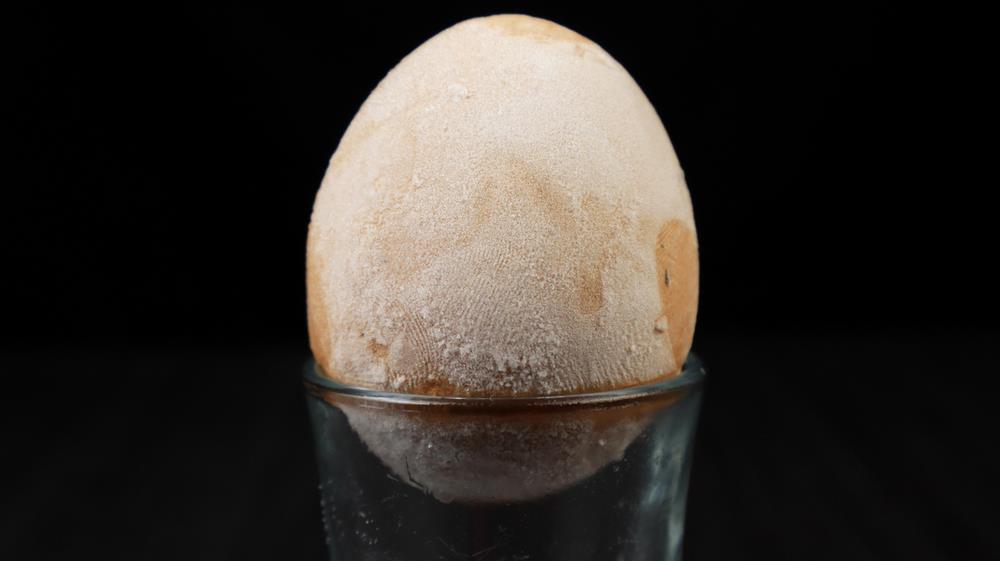
Moving beyond freezing, another effective method to preserve eggs is dehydrating and freeze-drying them.
Dehydrating eggs involves cooking them initially. Spread the cooked eggs on trays, drying them at 135°F for 4-6 hours. This method gives a shelf life of 5-10 years if stored in airtight containers.
For raw eggs, dehydrate at 160-165°F for 8-10 hours. Freeze drying eggs, using a specialized machine, works for both scrambled and raw eggs, extending their shelf life to 25 years.
- Ensure eggs are fully dried: Check moisture content; they should crumble easily.
- Use airtight containers: Crucial for long-term storage.
- Rehydrate before using: Mix one tablespoon of egg powder with two tablespoons of water.
- Versatile preservation methods: Suitable for both cooked and raw eggs.
Salting Egg Yolks for Extended Storage
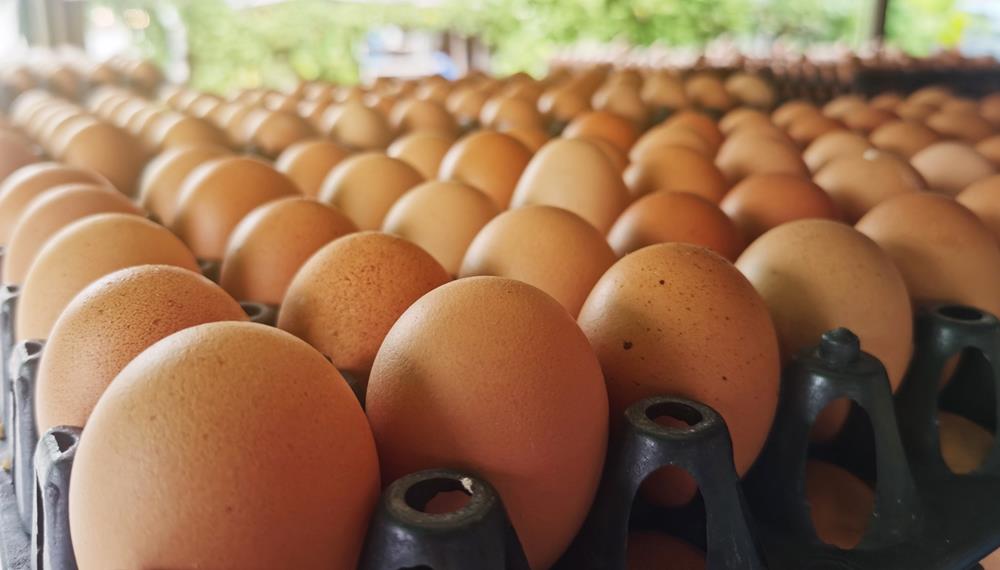
Transform your egg yolks into culinary gems by salting them for extended storage. Start by separating the yolks from the whites and placing them in depressions within a thick layer of salt. Make sure they don’t touch each other. Cover the yolks with more salt and refrigerate them for a week. This process firms them up, enhancing their flavor and ensuring spoilage is kept at bay.
Once firm, you’ve got options. Store the salted yolks in a cheesecloth bag for 1-2 weeks, or for long-term storage, use an airtight container.
This method preserves their culinary qualities for up to a year without refrigeration. Salting not only extends the shelf life of egg yolks but also keeps them as flavorful ingredients in your kitchen.
The Role of Hydrated Lime in Egg Preservation
Hydrated lime plays a vital role in preserving eggs through the water-glassing method, allowing you to store them for up to 18 months. By using calcium hydroxide, you create an alkaline environment that effectively hinders bacterial growth, ensuring long-term storage.
To optimize egg preservation, mix one ounce of food-grade hydrated lime with one quart of filtered water. This solution fully submerges the eggs, enhancing preservation effectiveness. Remember, using food-grade lime is important to avoid health risks.
- Proper mixing in a clean container prevents contamination.
- Don't stir the solution; it can crack eggs and reduce effectiveness.
- Settling of hydrated lime is normal and shouldn't be disturbed.
- Despite cloudier appearance, preserved eggs retain similar taste and texture to fresh ones.
Storing Eggs: Best Practices for Longevity
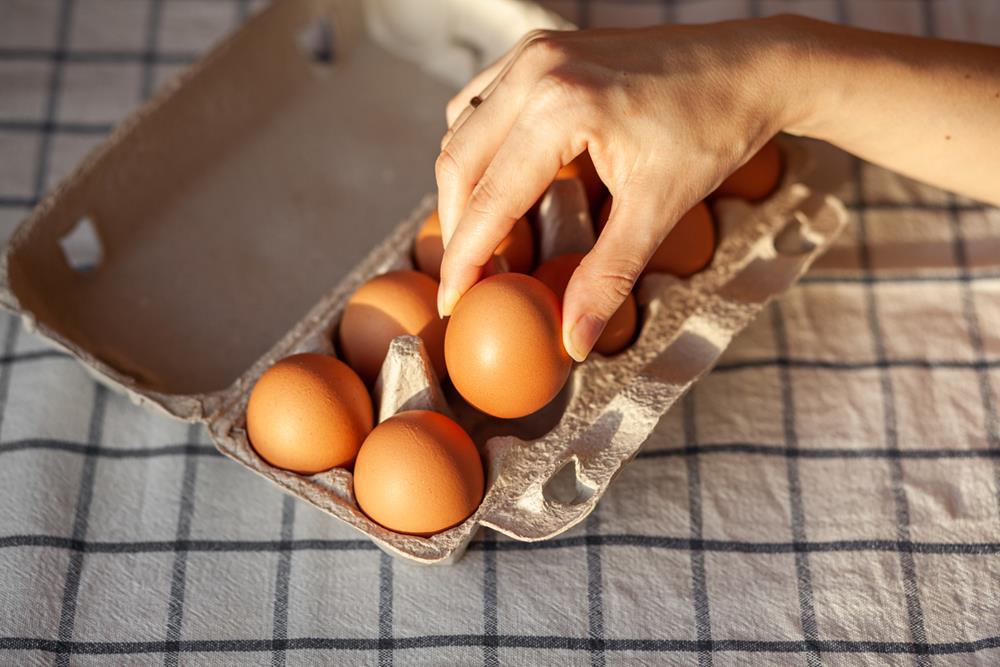
To keep your eggs fresh for as long as possible, it’s important to follow a few key storage guidelines.
- Store eggs pointy-end down in cartons or containers. This helps keep the yolk centered and preserves quality over time.
- Keep them in a cool, dark place, ideally at around 55°F with 75% humidity. Under these conditions, fresh eggs can last up to three months without refrigeration.
Water Glassing for Long-Term Storage
- Mix 1 ounce of food-grade hydrated lime with 1 quart of water to create a water glassing solution.
- Submerge clean, unwashed, farm-fresh eggs in the solution and store in an airtight container.
- Keep the container in a cool, dark place and check occasionally for any signs of spoilage.
- Properly stored, water-glassed eggs can last up to 18 months.
Freezing Eggs
- Crack and beat the eggs before pouring them into ice cube trays for portioned freezing.
- Once frozen, transfer the cubes to airtight freezer bags or vacuum-sealed containers.
- Frozen eggs can last up to a year when stored at consistent temperatures with good humidity control.
By using the right methods and storage conditions, you can safely extend the shelf life of your eggs and ensure a steady supply when fresh ones aren't available.
Each method serves different needs—water glassing is great for homesteaders with farm-fresh eggs, while freeze-drying is ideal for long-term preppers. Freezing works well for everyday convenience, and salting yolks adds a gourmet twist with moderate storage potential.
Choose what fits your lifestyle, storage capacity, and how you plan to use your eggs later.

